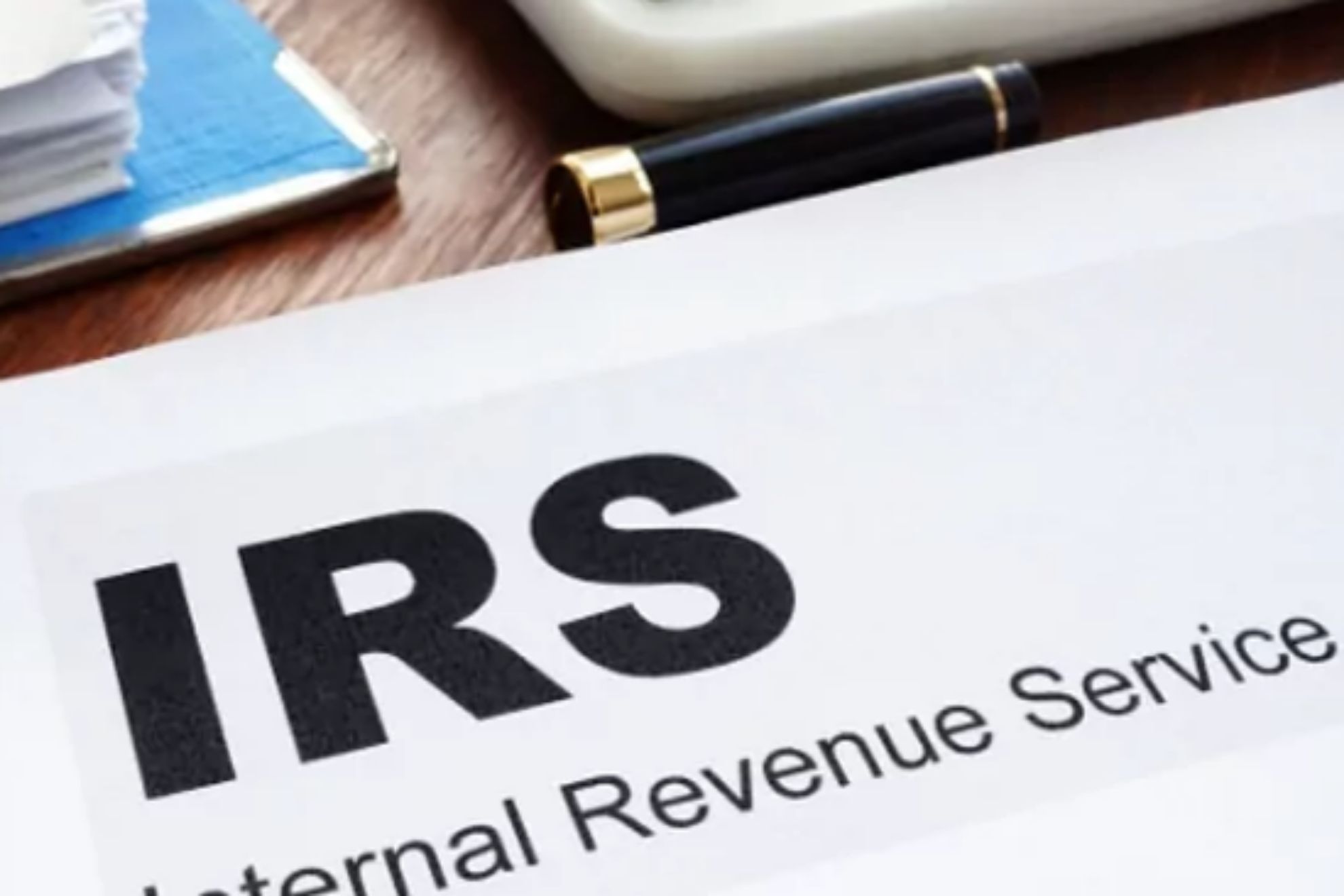Home>Finance>Why Is My Mortgage Not Showing On My Credit Report


Finance
Why Is My Mortgage Not Showing On My Credit Report
Published: October 20, 2023
Learn why your mortgage is not appearing on your credit report and how it affects your financial status. Find solutions and insights in this comprehensive finance guide.
(Many of the links in this article redirect to a specific reviewed product. Your purchase of these products through affiliate links helps to generate commission for LiveWell, at no extra cost. Learn more)
Table of Contents
Introduction
When it comes to managing your finances and maintaining a good credit score, having accurate and up-to-date information on your credit report is crucial. One of the key components that lenders look at when evaluating your creditworthiness is your mortgage. Your mortgage payment history and overall mortgage status play a significant role in determining your creditworthiness and financial stability.
However, what do you do if you discover that your mortgage is not showing on your credit report? This can be a cause for concern, as it may impact your credit score and hinder your ability to obtain credit in the future. In this article, we will explore the potential reasons why your mortgage is not appearing on your credit report and discuss the steps you can take to rectify this issue.
Understanding the intricacies of credit reporting and mortgage information is essential to unravel the mystery surrounding the absence of your mortgage on your credit report. By examining common reporting issues and errors, we can shed light on potential explanations and propose actionable solutions to ensure your credit report accurately reflects your mortgage situation.
Understanding Credit Reports and Mortgage Reporting
Before delving into the reasons why your mortgage may not be showing on your credit report, it’s important to grasp the fundamentals of credit reports and how mortgage information is typically reported.
Your credit report is a detailed record of your credit history and financial activities. It includes information such as your personal details, credit accounts, payment history, outstanding balances, and public records, among other things. Credit reporting agencies, such as Equifax, Experian, and TransUnion, compile this information from various sources, including lenders, creditors, and public records.
When it comes to mortgages, lenders generally report the details of your mortgage account, including the loan amount, payment history, outstanding balance, and any relevant updates or changes. This information is then added to your credit report and used to calculate your credit score.
Having a mortgage that is actively reported on your credit report can be beneficial in several ways. Firstly, it allows lenders to assess your creditworthiness accurately. It demonstrates your ability to manage a substantial financial commitment responsibly. It also enables you to establish a positive payment history, which can help improve your credit score over time.
However, even though mortgage reporting is common practice, there are instances where your mortgage may not appear on your credit report. This can be due to a variety of reasons, including reporting issues, errors, or omissions. Understanding these possibilities will help you determine the appropriate actions to resolve the issue and ensure the accuracy of your credit report.
Possible Reasons for a Mortgage Not Showing on Credit Report
If you find that your mortgage is not appearing on your credit report, there could be several potential reasons for this discrepancy. It’s important to investigate each possibility to determine the root cause and take appropriate actions. Here are some common reasons why your mortgage may not be showing on your credit report:
- Timing of the reporting: It’s possible that there has been a delay in the reporting of your mortgage to the credit reporting agencies. Generally, lenders report mortgage information on a monthly basis, but there can be variations in timing. Give it some time before assuming there is an issue.
- Reporting errors: Mistakes can happen during the reporting process, resulting in the omission of your mortgage from your credit report. This can occur due to incorrect or incomplete information provided by the lender or a technical glitch in reporting systems.
- Inactive or closed account: If your mortgage has been paid off or closed, it may no longer be reported on your credit report. Lenders typically stop reporting the account once it reaches a closed status.
- Incorrect account information: Double-check the accuracy of the information associated with your mortgage account. Ensure that your name, social security number, and other identifying details are correctly listed. Any discrepancies might prevent the mortgage from appearing on your credit report.
- Choice of lender: Some lenders may not report mortgage information to all credit reporting agencies. This could be a deliberate choice or a result of technical limitations. In such cases, you may see the mortgage appearing on one credit report but not on others.
It’s important to note that while these are common reasons, there could be other factors at play as well. It’s recommended to review your credit report thoroughly and reach out to your lender if you have any concerns or questions about why your mortgage is not showing on your credit report.
Common Reporting Issues and Errors
When it comes to credit reporting, errors and issues can occur, leading to discrepancies in the information displayed on your credit report. Understanding some common reporting issues and errors can help shed light on why your mortgage may not be showing on your credit report. Here are a few examples:
- Data entry mistakes: Human errors can happen during the data entry process when lenders report mortgage information to credit reporting agencies. These errors can range from typos in account numbers or inaccurate payment history. Such mistakes can prevent your mortgage from appearing on your credit report.
- Communication breakdown: Sometimes there can be a breakdown in communication between your mortgage lender and the credit reporting agency. This can happen due to technical glitches or administrative delays, causing your mortgage information to be omitted from your credit report.
- Identity verification issues: If there are discrepancies in your personal information, such as your name, address, or social security number, it can lead to difficulties in matching your mortgage account with your credit report. As a result, the mortgage may not be listed on your credit report.
- System integration problems: Lenders and credit reporting agencies rely on complex systems to exchange information. Sometimes, technical issues can arise during the integration process, causing a mismatch or failure to update your mortgage information on your credit report.
If you suspect that any of these issues are the cause of your mortgage not appearing on your credit report, it’s important to take proactive steps to address the situation. Contact your mortgage lender and credit reporting agency to report the error or discrepancy and provide any necessary documentation to support your case. Promptly resolving these issues can help ensure the accurate reporting of your mortgage information on your credit report.
Actions to Take if Your Mortgage is Not Showing on Credit Report
Discovering that your mortgage is not appearing on your credit report can be concerning, especially if you rely on your credit score for future financial endeavors. To address this issue and ensure the accurate reporting of your mortgage information, consider taking the following actions:
- Contact your lender: Start by reaching out to your mortgage lender to inquire about the reporting status of your mortgage. They can confirm whether they are reporting your mortgage information to the credit reporting agencies. If not, ask them to begin reporting it or provide a clear explanation for why they are not reporting.
- Dispute inaccurate information: If you notice any inaccuracies or discrepancies in your mortgage information on your credit report, file a dispute with the credit reporting agency. Provide any supporting documents or evidence to rectify any errors and ensure the accurate representation of your mortgage on your credit report.
- Request a manual update: In some cases, the reporting delay or technical issues may have caused your mortgage information to not be reflected on your credit report. Contact the credit reporting agency directly and request a manual update to ensure that your mortgage information is added to your report.
- Monitor your credit regularly: Keep a close eye on your credit report by regularly monitoring it through reputable credit monitoring services. This allows you to stay informed and quickly identify any issues or errors with the reporting of your mortgage or any other accounts.
- Follow up with credit reporting agencies: If you have taken the necessary steps to address the issue and have not seen any improvement within a reasonable timeframe, follow up directly with the credit reporting agencies involved. Provide any necessary documentation and politely request that they update your credit report accordingly.
Remember, resolving the issue may take time, patience, and proactive communication with your lender and the credit reporting agencies. Be persistent in your efforts to rectify the situation and ensure the accurate reporting of your mortgage on your credit report.
Conclusion
Having accurate and up-to-date information on your credit report is essential for maintaining a healthy financial profile. If you discover that your mortgage is not showing on your credit report, it’s important to investigate the potential reasons and take appropriate actions to rectify the situation.
In this article, we explored the possible reasons why your mortgage may not be appearing on your credit report, including timing of reporting, errors, closed accounts, incorrect information, and choice of lender. We also discussed common reporting issues and errors, such as data entry mistakes and communication breakdowns, which can contribute to the omission of your mortgage from your credit report.
If your mortgage is not showing on your credit report, it’s crucial to take proactive steps. Contact your lender to inquire about their reporting practices and ensure that accurate information is being reported to the credit reporting agencies. Dispute any inaccuracies or inconsistencies in your credit report and provide supporting documentation to rectify errors.
Keep a close eye on your credit report and actively monitor it for any changes or updates. Follow up with both your lender and the credit reporting agencies if the issue persists or if you don’t see any improvements despite your efforts.
Remember, resolving the issue may require patience and persistence, but it’s crucial to ensure the accurate representation of your mortgage on your credit report. By taking prompt action, you can safeguard your creditworthiness and maintain a strong financial foundation for future endeavors.














